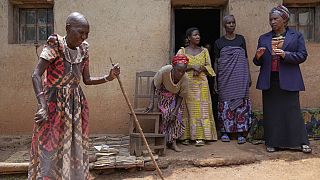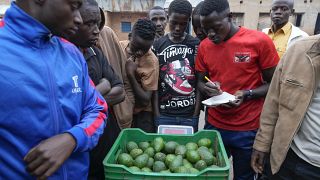Burundi
Burundi has forced the United Nations to shut its local human rights office after 23 years, the U.N. human rights office said on Tuesday.
U.N. High Commissioner for Human Rights Michelle Bachelet said in a statement, read out by an OHCHR spokeswoman, that the central African state’s government had declared it had made sufficient progress in human rights, so that the existence of the U.N. office was no longer justified.
“Two years after the suspension of cooperation, on the 5th of December last year, the government requested the closure of our office in Burundi, explaining that the country had made sufficient progress in putting in place national mechanisms for the protection of human rights, so the existence of our office was no longer justified”, said Ravina Shamdasani, spokeswoman for for the United Nations Office of the High Commissioner for Human Rights.
Many advancements in human rights in Burundi had been jeopardised since 2015, when President Pierre Nkurunziza announced he would seek a third term, Bachelet added.
Violence surged after the announcement, which many saw as a breach of the constitution. He won re-election but the decision to stand sparked protests and a security crackdown that left hundreds dead and prompted around half million to flee abroad.
In October 2016, Burundi suspended all cooperation with the U.N. office in Burundi, following publication of a report by a U.N. independent investigation that said the government and its supporters were responsible for crimes against humanity.
Burundi said the report was “lies” and when the U.N. Human Rights Council considered renewing the investigation in 2017, Burundi offered to accept U.N. human rights experts instead.
But the rights council voted both to renew the investigation and to send the experts, infuriating the Bujumbura government.
Burundi subsequently threatened to prosecute the rights council’s team of investigators and accused its chairman of “selling” Africans like in the era of slavery, a comment that outraged Bachelet.
The government also threw out the three visiting U.N. human rights experts it had promised to cooperate with, accusing them of arriving unannounced and acting like spies.
Reuters












02:09
Russia vetoes UN resolution calling for immediate cease-fire in Sudan
01:07
Sudan keeps key aid crossing from Chad open to keep humanitarian aid flowing
01:22
Cases of new mpox strain more than double among children in DR Congo and Burundi
01:58
Climate adaption: Unfulfilled pledges mean “lost lives and denied development” – UN chief
00:56
South Sudan's peace monitoring body meets to discuss election postponement
02:31
UN extends Western Sahara mission amidst abstentions and Algerian protest